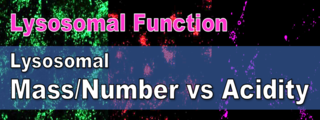Metabolic Dysregulation Triggers Alzheimer's Disease [Feb. 19, 2025]
Previous Science Note
| Disruptions in metabolic pathways such as glycolysis or OXPHOS lead to redox stress, bioenergetic failure and toxic protein accumulation, exacerbating neurodegeneration in cognitive disorders such as Alzheimer's disease. This Science Note introduces research papers showing how metabolic dysfunction in neurons contributes to cognitive impairment. | ||
|
Restoring hippocampal glucose metabolism rescues cognition across Alzheimer’s disease pathologies Highlighted technique: OCR (oxygen consumption rate) and ECAR (extracellular acidification rate) measurements are key to assessing metabolic changes. Since our OCR assay kit is available for measurement without a Seahorse analyzer, they may be a good option for interested researchers. |
||
|
Weak neuronal glycolysis sustains cognition and organismal fitness Highlighted technique: Mitochondrial abnormalities, which are directly related to metabolic dysfunction and cell death, can be assessed by various indicators. Commonly used methods include measuring mitochondrial membrane potential, detecting ROS levels, and observing mitophagy.
|
||
|
β-hydroxybutyrate is a metabolic regulator of proteostasis in the aged and Alzheimer disease brain Highlighted technique: Aβ aggregation, a key factor in Alzheimer's disease, is often studied in vitro under conditions that promote aggregation. Interestingly, this study uses ex vivo experiments with brain lysates to better mimic physiological conditions.
|
||
Related Techniques (click to open/close) |
||
Application Note (click to open/close) |















